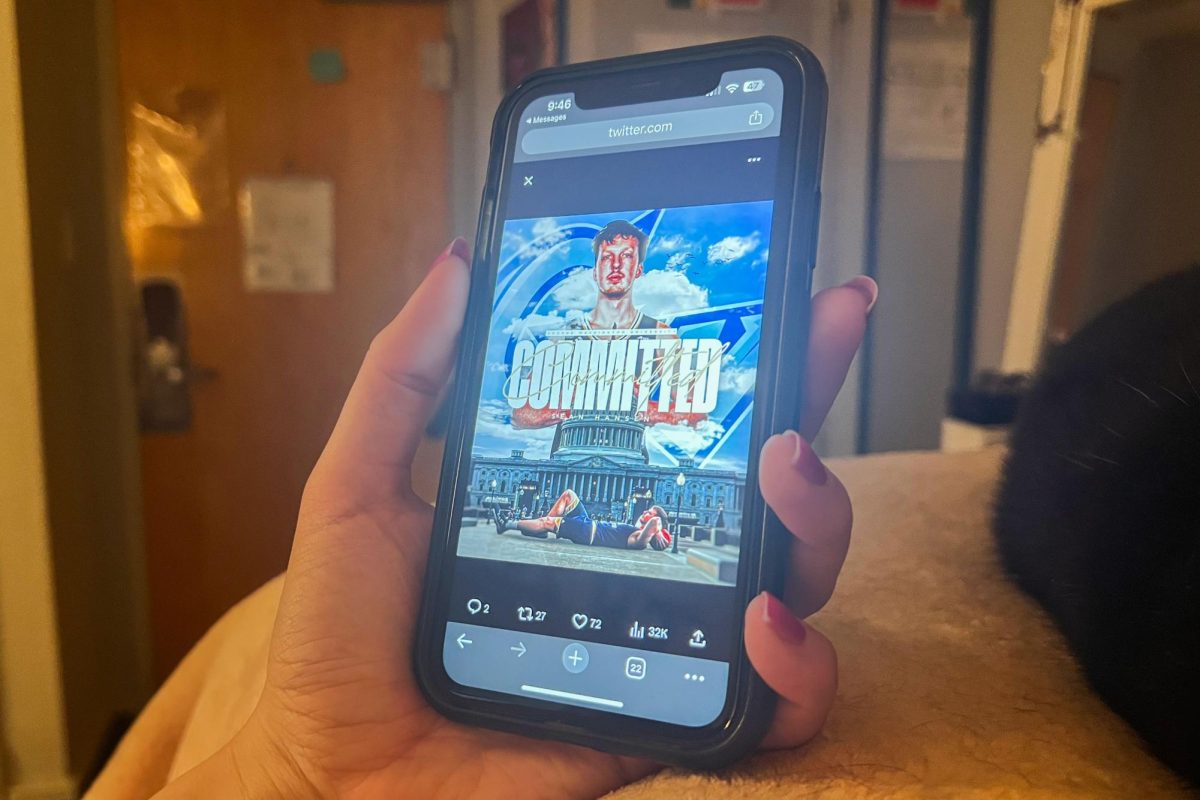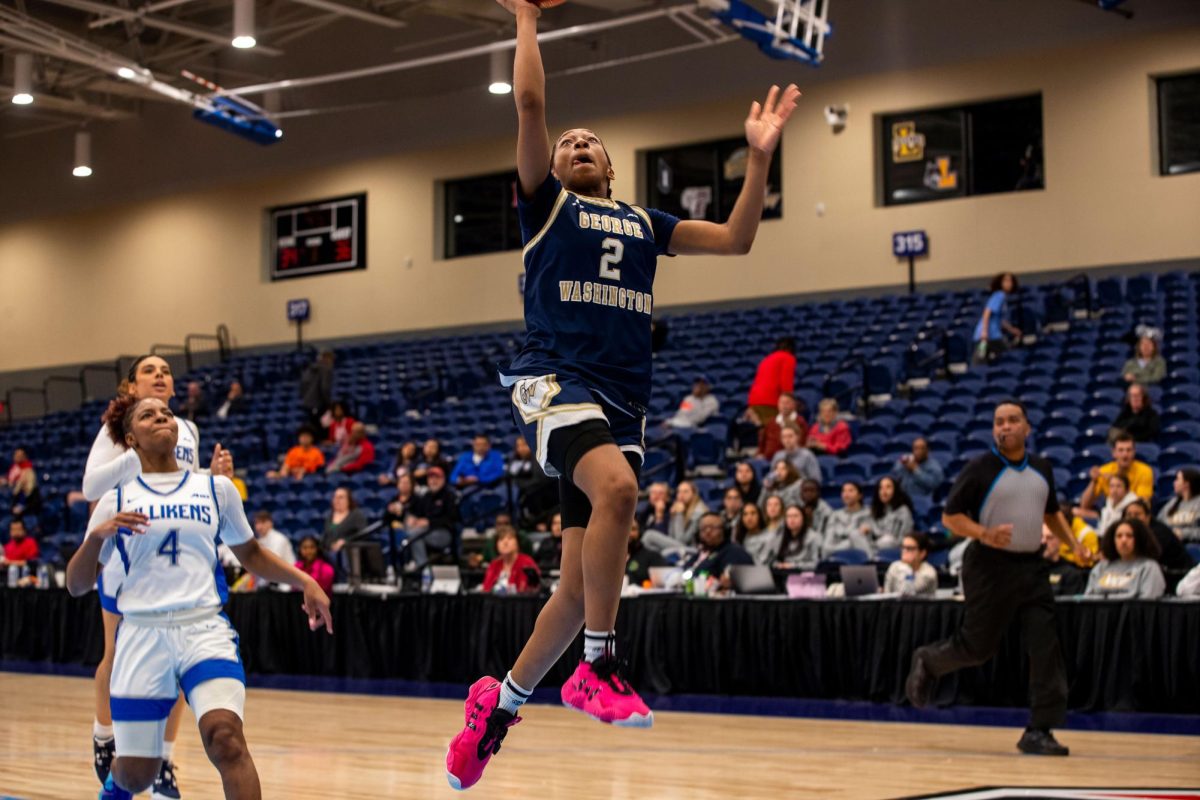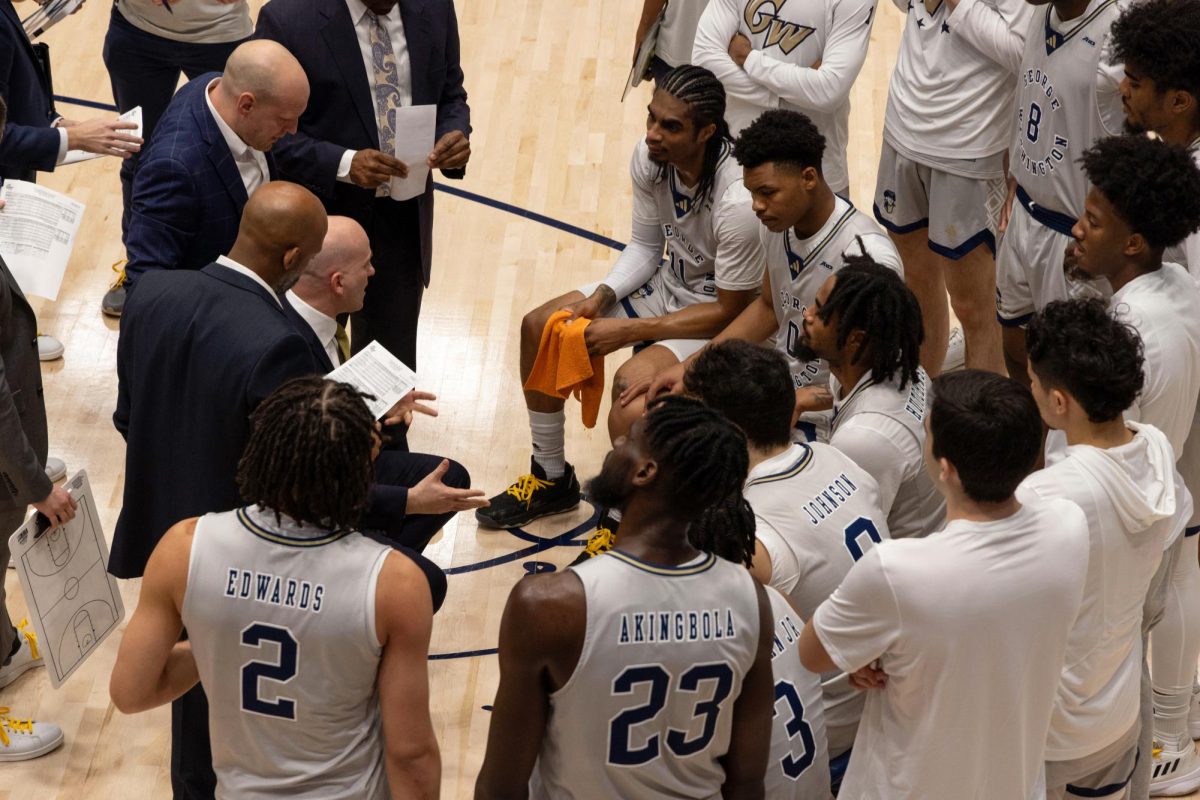Jackie Robinson once said, “A life is not important except in the impact it has on other lives.” It is in this spirit that a baseball game Tuesday will remember and honor the man who broke the Major League Baseball color barrier on April 15, 1947.
In a joint effort between the GW baseball team and the GW chapter of the Jackie Robinson Society, Tuesday’s game against visiting Georgetown marks the beginning of a new tradition, The Jackie Robinson Game, which organizers hope will be played annually.
An award will be presented before the game to the GW player that most embodies the ideals for which Robinson stood. It will be based on character rather than statistics, head coach Tom Walter said. The presentation is a small part of a larger ceremony that will describe the reasons for the award and honor Robinson’s legacy. GW will provide free transportation available outside of the Smith Center at 2:30 p.m., and Robinson’s highlights and statistics will be displayed on the scoreboard.
Walter said his team will tribute Robinson by wearing their socks high in the style of the Brooklyn Dodgers.
When Major League Baseball dedicated its 1997 season to the 50th anniversary of Robinson’s breaking the color barrier, GW professor of sociology Richard Zamoff said he realized that GW students knew nothing about the man.
“I found that GW students were almost totally ignorant of his historical significance,” Zamoff said. “Not that GW students were any different than the rest of the country.”
In 1997 Zamoff received a grant from the D.C. Humanities Council to create a lecture series on Robinson, in which he invited guest speakers to GW. When the series was over, Zamoff was encouraged to keep the project alive, so he proposed that GW offer a class on Robinson. The University created “Jackie Robinson: Race, Sports and the American Dream,” and three students proposed that GW create a chapter of the Jackie Robinson Society.
The society hosts several functions a year, which have included speaking
appearances by Robinson’s widow, Rachel Robinson, and one of Robinson’s teammates, former Dodger pitcher Carl Erskine.
The idea for a game in Robinson’s honor had been periodically mentioned, and Walter and Zamoff decided to finally make it happen this year. Tuesday’s date proved to be the perfect opportunity because the Colonials play cross-town rival Georgetown, and the game falls one day after April 15, the day Robinson played his first game for the Brooklyn Dodgers (Robinson went 0-for-3, but scored one run in the Dodgers 5-3 win over the Boston Braves). Coach Walter mentioned that they might try to have the professor throw out the first pitch at Tuesday’s game.
The game against Georgetown is more than a tribute.
“It would be nice to have the Jackie Robinson Game as bragging rights for D.C.” Zamoff said.
Zamoff also sees the game as an opportunity to generate interest in Robinson’s life and the Jackie Robinson Society.
“Just to keep his name in people’s consciousness and to promote the person as more than a baseball player continues to encourage me,” Zamoff said.
While Zamoff said Robinson’s baseball career was “almost just a stage in his civil rights career,” Robinson’s importance to the civil rights movement from his retirement in 1956 until his death in 1972 is largely unknown. Zamoff hopes events such as this will educate people about Robinson the activist, not Robinson the athlete.
Zamoff sees the game as an appropriate way to honor the impact of the player since baseball was the initial way Robinson entered the public consciousness.
“His impact was as large on white society as it was on black society,” Zamoff said. “He made it possible for white kids to have black heroes.”
Walter, who admitted he knew little about Robinson until 1997, said he admires Robinson’s courage.
“A lot of us take for granted that he was the first black ballplayer, and think that he only had to go out and play,” Walter said. “But we don’t realize all that he really had to do.”
Dodgers general manager Branch Rickey could anticipate constant insults, discrimination and prejudices the first black MLB player would face. He chose Robinson because he thought his character was strong enough to endure the degradation and not fight back. Robinson proved Rickey right, keeping a cool head in the most difficult circumstances.







